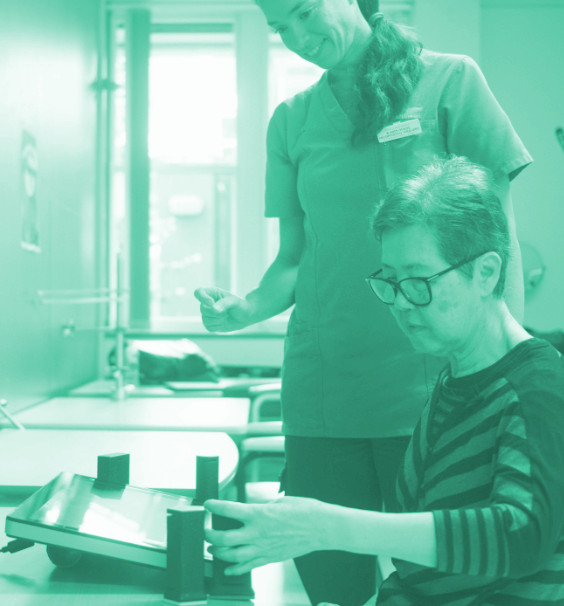New stroke tech tested
 A new touch-screen therapy tool could accelerate the recovery of patients who have suffered a stroke.
A new touch-screen therapy tool could accelerate the recovery of patients who have suffered a stroke.
Designed for people with acquired brain injuries, RMIT researchers have developed a digital rehabilitation software that delivers therapy through a series of fun and challenging therapeutic games via a touchscreen device.
Findings from a randomised clinical trial showed stroke patients who incorporated the devices into their treatment programs experienced an improvement two to three times greater than those who received only conventional therapy.
The system is known as ‘EDNA’.
RMIT University lead researcher, Associate Professor Jonathan Duckworth, said the digital form of rehabilitation was intended to maintain patient engagement, improving compliance and recovery.
“We designed EDNA so that patients could be doing therapy without it feeling like therapy,” he said.
Stroke is one of the most common forms of acquired brain injury and currently affects half a million Australians. It often results in impaired hand and reach function, making it a leading cause of disability.
Early and intensive rehabilitation leads to improved functional outcomes, however only 50% of stroke patients receive adequate therapy.
EDNA features a range of therapeutic games that involve tangible and graspable tools with augmented feedback, promoting brain plasticity to regain motor, cognitive and functional ability.
Performance data is then collected in the cloud, allowing therapists to remotely review the integrated data, monitor recovery and deliver tailored treatment programs.
Duckworth said that while the results couldn’t yet be used to predict longer-term recovery, the findings were promising and showed the value of including EDNA as part of a therapy toolkit.
“EDNA is the first upper-limb brain injury rehabilitation system to integrate clinic and home therapy to monitor recovery, so there’s great potential to transform the industry and improve outcomes for patients.”
The recent clinical trial, published in the Journal of NeuroEngineering and Rehabilitation, involved a specialised table-top touch screen.
A new study is now underway at Sydney’s Prince of Wales hospital using a portable version that allows for increased treatment frequency with independent therapy at home.







 Print
Print